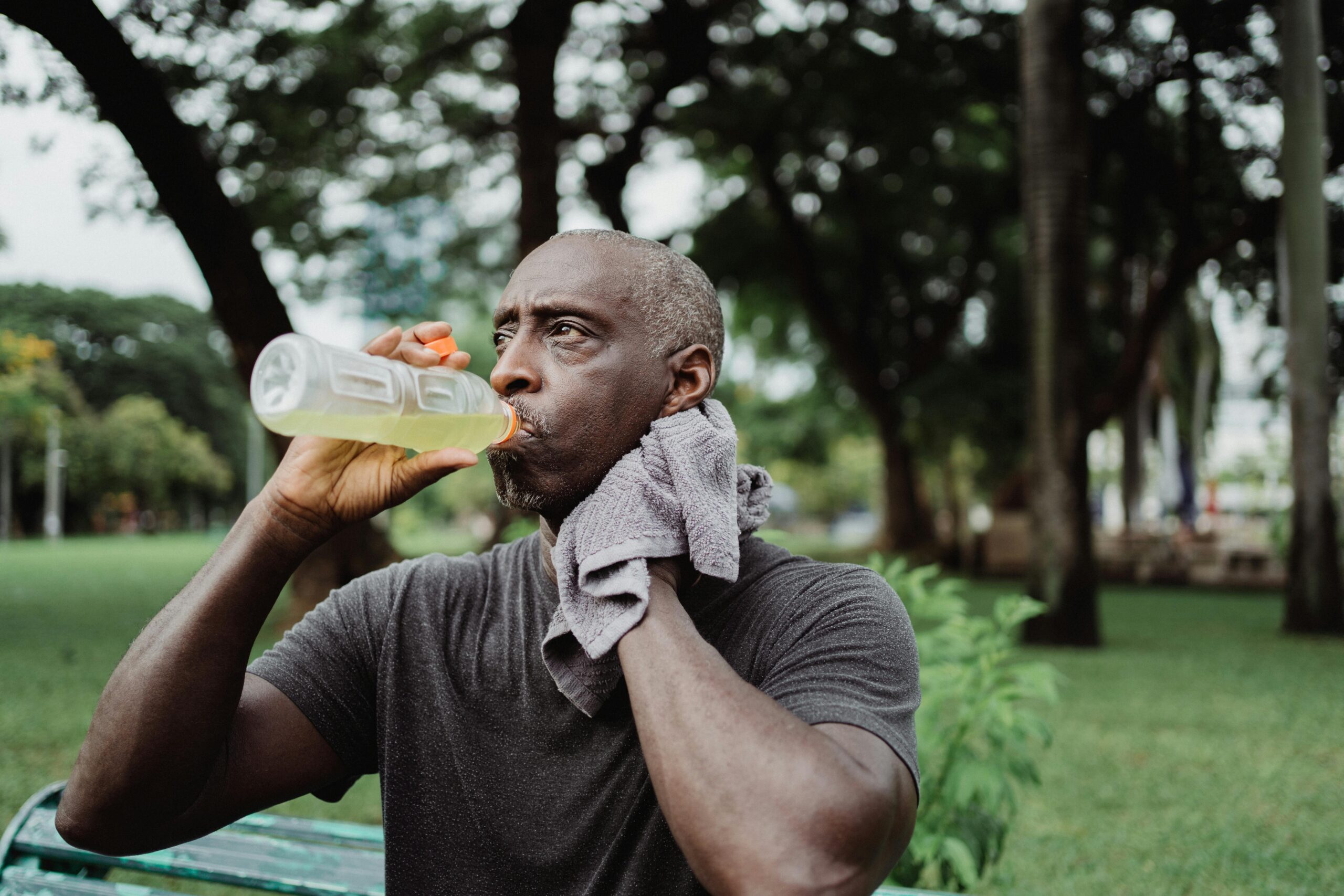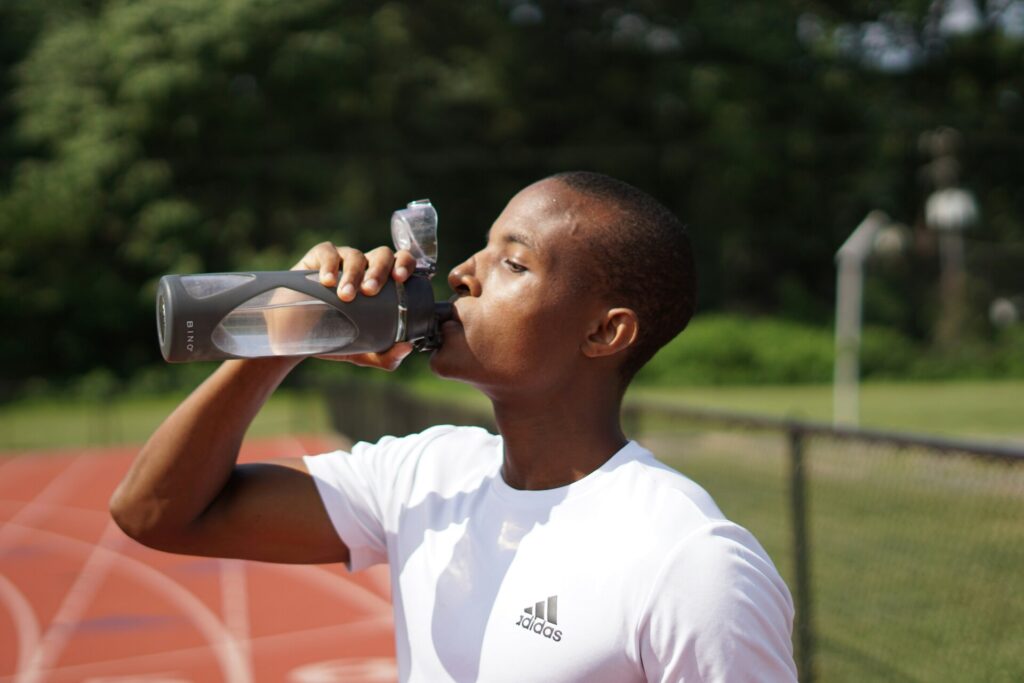Whether you need electrolytes after a workout really depends on how long and intense your session was. The more you sweat, the more likely your body will need help restoring balance, and that’s where electrolytes come in.
These essential minerals, like sodium, potassium, and magnesium, help your body rehydrate, rebuild, and perform better in your next workout. They regulate muscle contractions, fluid balance, and energy levels. When you’re sweating heavily, water alone may not cut it.
Take a long-distance run or a high-intensity class in humid weather. In those cases, sports drinks or hydration supplements can speed up recovery by replacing what you’ve lost. But for light, everyday workouts, plain water is often enough.
This article breaks down when electrolytes actually matter, what’s just fitness marketing hype, and how to choose the right hydration strategy based on your workout.
What Electrolytes Do You Need After Workout?
After exercise, your body needs to replenish key electrolytes lost through sweat, primarily sodium, potassium, magnesium, calcium, and chloride. These charged minerals help regulate fluid balance, nerve signals, and muscle function, all of which are essential for proper recovery.
Each one plays a different role:
- Sodium helps retain fluids and supports blood pressure.
- Potassium aids muscle contractions and helps prevent cramping.
- Magnesium supports energy production and reduces fatigue.
- Calcium assists in muscle coordination and bone health.
- Chloride works with sodium to maintain fluid levels.
If you’ve ever felt drained, dizzy, or crampy after a tough workout, chances are you were low on one or more of these minerals. That’s when a hydration supplement or balanced sports drink can help.
Electrolytes are at the heart of hydration during exercise and post-workout recovery. Replenishing them helps your body bounce back quickly and be ready for whatever’s next.
Why Are Electrolytes Important After Workout?
Electrolytes are important after workouts because they directly impact how well and how fast your body recovers. From how energized you feel to how ready you are for the next session, these minerals quietly influence it all.
When your electrolyte levels dip, muscle contractions weaken, hydration slows down, and fatigue can hit harder. But maintaining a healthy balance after exercise helps your body rebuild tissue, regulate heart rate, and restore fluids efficiently. These are all key to bouncing back strong.
Here’s a quick scenario: Two people complete a 90-minute high-intensity session. One sips plain water. The other is a post-workout recovery drink containing sodium and potassium. Hours later, the second person feels more alert, has fewer cramps, and is ready for round two. That’s the practical difference electrolytes can make when used at the right time.
Now that you’ve seen their role in recovery, let’s separate real benefits from marketing hype.
Facts vs Hype About Electrolytes After Workout
There’s no denying that electrolytes play an important role in recovery, but the fitness industry often oversells their necessity. Knowing the facts helps you make wise hydration choices instead of falling for hype.
Many brands promote the best sports drinks or hydration supplements as must-haves after every session. In truth, your electrolyte needs depend on factors such as workout duration and intensity, sweat loss, and environmental conditions. Not every workout requires a sports drink, and overusing them can add unnecessary sugar without improving recovery.
To help clear the confusion, here’s a quick breakdown comparing common facts versus fitness marketing hype:
| Category | Fact | Hype |
| When you need them | Only essential after long, intense, or hot-weather workouts | Every workout needs a sports drink |
| What they do | Replace minerals lost through sweat and support hydration | Instantly boost muscle gain or performance |
| Best sources | Can come from natural foods or hydration supplements | Only branded drinks or powders work |
| Hydration approach | Water is fine for short sessions, and electrolytes help with endurance | Water is never enough, supplements are always better |
| Added sugars | A small amount can help absorption | More sugar equals more recovery |
In short, electrolytes after workout are most effective when used strategically.
Next, let’s look at when electrolytes become truly essential, and how to recognize the signs your body truly needs them.
When Do You Need Electrolytes?
Not every workout calls for electrolyte replenishment, but certain conditions absolutely do. The trick is knowing when your body truly needs that extra support.
Electrolytes become essential after exercise in situations like:
- Endurance training: Running, cycling, or swimming for more than 60 minutes.
- Hot or humid conditions: Heavy sweating increases mineral loss.
- High-intensity intervals or back-to-back sessions: Greater physical stress demands more recovery.
- Visible salt residue: White marks on your skin or clothes often signal significant sodium loss.
- Minimal rest between workouts: Your body needs rapid recovery when downtime is limited.
In short, electrolytes are not for every gym visit. They are a recovery tool for taxing workouts. When you align your hydration with your training intensity, you avoid the guesswork and give your body exactly what it needs to bounce back stronger.
So, let’s talk about when plain water is more than enough.
When is Water Enough Instead of Electrolytes After Workout?
For most everyday workouts, plain water does the job just fine. You don’t need to reach for the best sports drinks or hydration supplements after every session, especially if your workout is short, low-intensity, or done indoors.
If you’re eating well and staying hydrated, your body naturally restores fluid and mineral balance during moderate activities. This includes things like a 30-minute jog, yoga, or strength training. Using electrolyte products when they’re not needed can add unnecessary sugar and calories without speeding up recovery.
Water is usually enough in situations like:
- Light workouts like walking or casual cycling.
- Cooler weather, when sweat loss is minimal.
- Post-workout meals that include fruits, vegetables, and a bit of salt.
- Already being well-hydrated before and during your session.
In these cases, water keeps your system balanced without the additives found in many commercial drinks.
Recovery doesn’t always need to be complicated. With a nutrient-rich diet and consistent hydration, your body can bounce back efficiently. Save the supplements for when your workout truly demands more.
Final Thoughts
Smart recovery isn’t about following trends, it’s about understanding your body’s actual water and electrolyte requirements for exercise. While electrolytes aren’t necessary after every session, they can be game-changers when your workouts are longer, more intense, or done in tough conditions.
The key is to align your recovery choices with your effort and your realistic fitness goals. For quick, everyday workouts, water is often all you need. But for endurance training or heavy sweat sessions, the right hydration supplement can make a real difference.
Listen to your body, stay aware of your environment, and fuel accordingly. When you find that balance between what your workout demands and what your body truly needs, your performance lasts longer and your fitness journey becomes more sustainable and rewarding.


